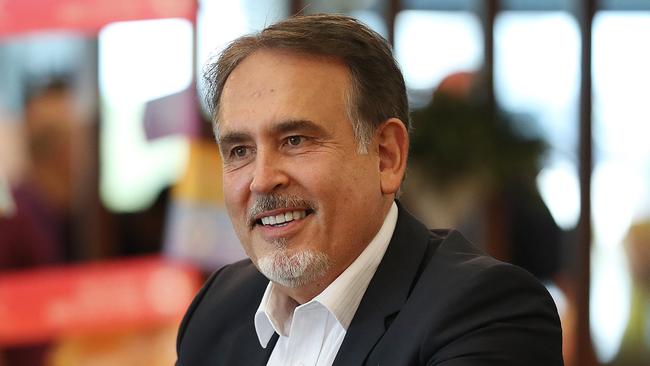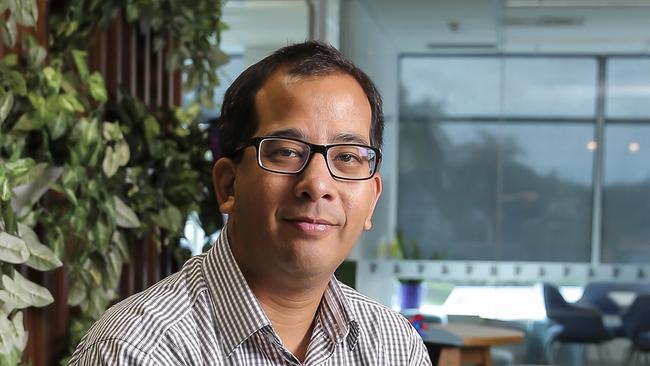Allegations of dodgy accounting have hit Technology One, which labels them ‘false and misleading’
A Brisbane technology firm has come under fire from overseas researchers, who claim it used accounting sleight of hand to create the illusion of growth and camouflage problems. But the firm has hit back.
City Beat
Don't miss out on the headlines from City Beat. Followed categories will be added to My News.
ANOTHER Brisbane firm has come under fire from overseas researchers, who are aiming to sink the share price for their short-selling clients.
We’ve seen that ambush movie before, with a blistering analysis of Blue Sky Alternative Investments by a US mob paving the way for its eventual demise last year.
Similar criticism from domestic provocateurs wounded Corporate Travel Management in late 2018.
Now it’s the turn of Technology One, which has found itself in the crosshairs of Hong-Kong based group GMT Research.
GMT operative Nigel Stevenson alleges in a new report that Technology One used accounting sleight of hand to create the illusion of growth and camouflage problems last year.

Specifically, he claims that the company’s reported $76.4m net profit in the year to last September was “inflated by more than 200 per cent’’.
New accounting standards suggest revenue, which supposedly spiked 13 per cent to $286m, was “significantly lower,’’ the report says.
Indeed, Stevenson alleges that underlying revenue was actually flat in the 2018 financial year and grew just 1 per cent in 2019.
REACTING BADLY
Few punters had seen Stevenson’s report, dubbed “Growth Illusion,’’ before it got a bit of media attention over the weekend and Technology One returned fire on Monday.
Although the company dismissed the allegations as “false and misleading’’ in a statement to the ASX, that move appears to have backfired somewhat as it simply provided more oxygen for the issue.
Investors reacted badly, sending the Technology One share price down nearly 6.5 per cent to close at $8.18, its lowest point in three months.
But company founder and chairman, Adrian Di Marco, and his chief executive, Ed Chung, felt they had to react and they remain adamant that the books are legit.
“GMT Research spent only 30 minutes with us, so we are very surprised with their limited knowledge that they would have published a report in the first place, and more importantly without verifying the accuracy of the report with us,” they said in a joint statement.

“Technology One was at no time shown the report….(and) unreservedly stands 100 per cent behind our audited accounts as being a true and accurate reflection of our business over the last 21 years.’’
They also remain committed to their previously released full-year guidance, which tips a pre-tax lift in profit of between 8 and 12 per cent.
Technology One said it would refer the matter to ASIC, although it’s hard to see what, if any, action the corporate cop could take.
Launched in 2014, GMT describes itself as Asia-focused “accounting research firm’’ with fewer than a dozen employees. It claims to have developed “proprietary methodologies to detect financial anomalies, or traits similar to past shenanigans’’.
FIGHTING SEPSIS
UQ researchers have rightly received plenty of attention for their work on a COVID-19 vaccine.
But less well-known is another Brisbane biotech outfit, Immunexpress, which is also doing its bit to fight the global pandemic.
The company has just won an $880,000 grant from the US Department of Health and Human Services to further develop their technology aimed at the early detection and diagnosis of sepsis.
It turns out that sepsis, which is the body’s life-threatening response to infection, is the most frequently observed complication in patients stricken by the coronavirus and a leading cause of death among them.
A blood test using Immunexpress technology can yield a result in just one hour.
Company director Greg Brown told us the grant will be used over the next six months to determine whether the current testing for sepsis works for COVID-19 patents or whether it needs to be modified.
Immunexpress, which launched in 2006, has an office in Seattle where it is focused on commercialisation efforts.
But the potentially lucrative intellectual property remains in Brisbane, where all the company’s research and development work is still carried out.
